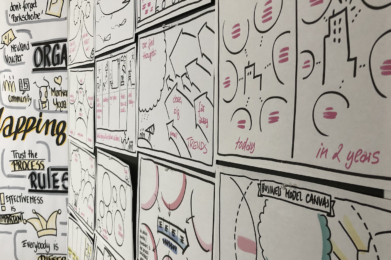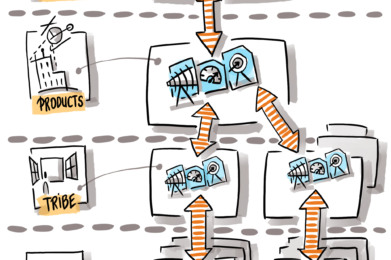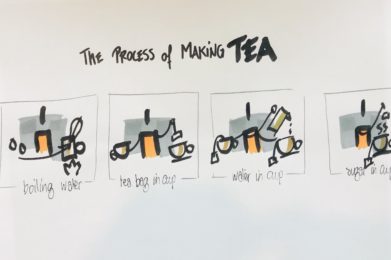In the usual relaxed bikablo learning atmosphere, you can start from your own stand on to the next level of visual thinking. The trainers take a lot of time to accompany you individually to find out your learning goals and to enrich your repertoire with techniques from bikablo’s over 15 years of experience.
In this training, we will address the different altitudes in the process analysis with our own questions:
- Meta-level for change processes: the satellite perspective
What is the big plan and our intention? What influence do markets, global trends and internal organizational dynamics have? What are our basic assumptions and thinking models? What common vision can we agree on? What are the principles and values of our cooperation?
For every case example, we find a suitable set of questions, which we explore with strategy pictures, principles posters or workgroup templates. Even the classic „hero’s journey“ with the company as the protagonist can lead to a common understanding here.
- Macro level for change processes: the helicopter perspective
What are the main process and supporting processes? What are the key phases, participants and resources? Who is the customer, who is the supplier, which values should be created and which rules, tasks and structures are necessary for this?
Visualization techniques to answer these questions can be process maps, theme logos, visualized user stories or thought sketches.
- Meso and micro level for workflows: the magnifying glass perspective
Which events, sub-processes and activities are crucial in the daily process? Who works together with whom? Where are interfaces and bottlenecks? What can be automated, what not? What works well and what errors, bottlenecks or wastes become visible?
We work on these questions with process comics in the swimming lane layout on the basis of the SIPOC (Supplier Input Process Output Customer) principle.
- Practical Case: You work on your own case study with the new methods and reflect the result in the circle of the learning group.






